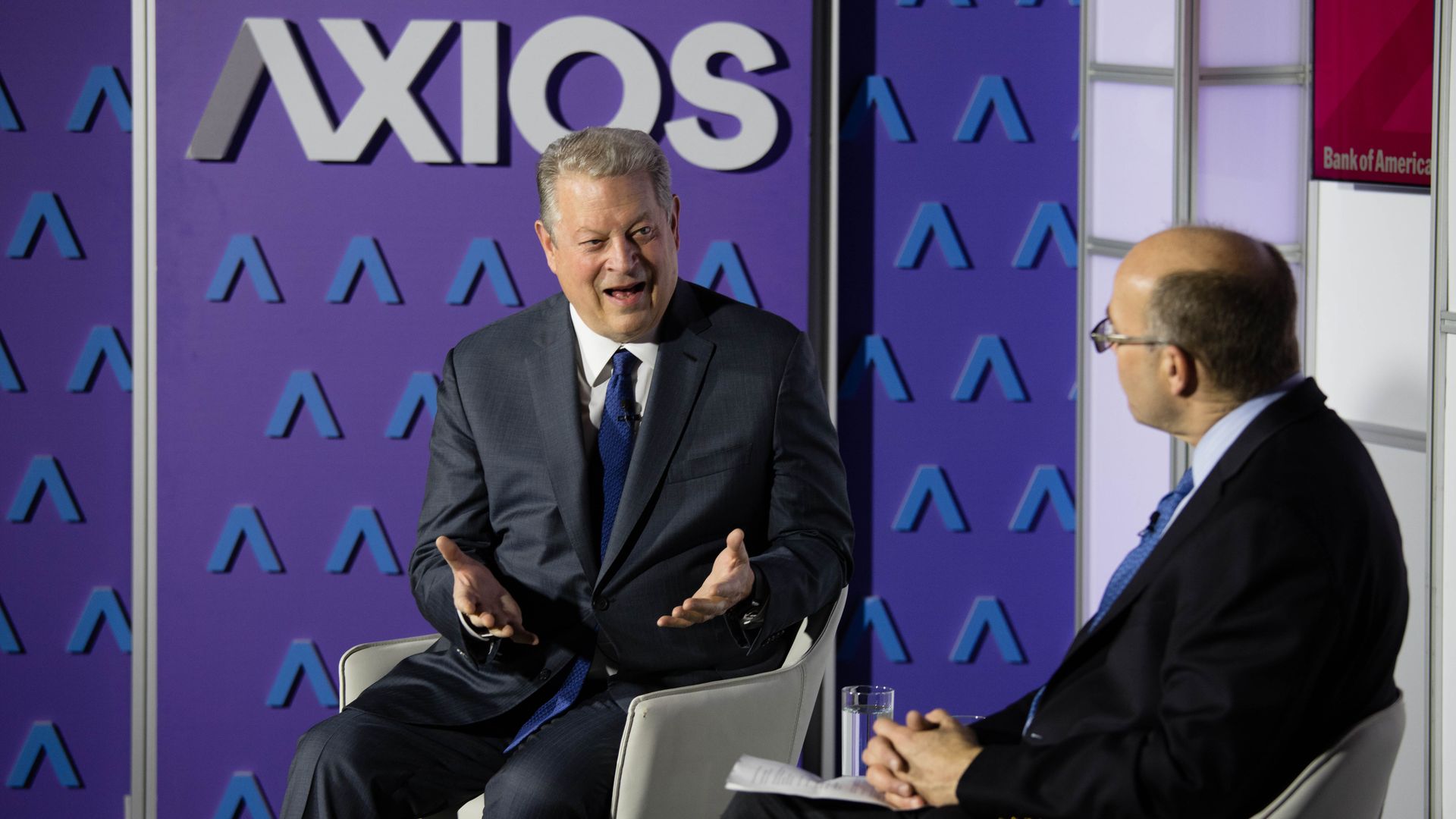Climate change as a flawed social movement
Add Axios as your preferred source to
see more of our stories on Google.

Al Gore speaks to Mike Allen at an Axios event. Photo: Axios/Chuck Kennedy
Speaking at an Axios event Tuesday, Al Gore likened climate change activism to a suite of other morally driven movements — such as gay rights and abolishing slavery — but sociology experts say climate is unique in a way that makes it harder to rally around.
Why it matters: For all the debate around climate change, Congress has never passed comprehensive legislation on the matter since it became a public concern decades ago. Climate is also not a top priority compared to other issues for most Americans.
"Every great morally based movement that has advanced the prospects for humanity has been led in significant measure by young people. I see this climate movement in the context of these previous movements, [such as the] abolition of slavery."— Al Gore, climate activist and former vice president, at Axios event
What we’re hearing: Robert Brulle, a sociologist at Drexel University, cited a 2017 study by Stanford sociologist Doug McAdam that concluded climate change “has spawned surprisingly little grassroots activism in the contemporary United States.” McAdam cites a few factors for that, such as Republicans denying the issue is a problem and lobbying by fossil-fuel companies.
Brulle added in an interview Tuesday that the climate movement is unique because it doesn’t have a natural constituency like civil rights, feminism or gay marriage — all of which have specific types of people directly and clearly affected.
“Where as the environmental movement, there’s not a natural group with a vested interest. In other words, you could say young people because they’ll live longer, but it depends on whether you’re rich or poor, and whether you live in Bangladesh or Sweden or Switzerland. You get a lot of variety.”— Robert Brulle, sociologist at Drexel University
Staff for Gore said in response that climate change affects a broader constituency than other issues, and also that other social movements were helped by those not directly affected.
One level deeper: While Brulle disagrees with Gore on the extent of similarities between climate activism and movements, the two seem to agree on a related idea: Lawsuits alleging oil and gas companies concealed what they knew about climate change could play a pivotal role in compelling Washington to act. These lawsuits are seeking from oil companies billions of dollars of damage caused by rising global temperatures. (Read this column for lawsuit details.)
If a trial became even a remote possibility, some lawyers predict oil companies would go to Congress, which cigarette companies did facing liabilities related to cancer. The theory goes that industry would push Congress to enact a climate policy like a carbon tax in exchange for limiting liabilities.
What they're saying: “The way these morally based revolutions advance is sometimes public opinion changes enough to the point where the courts realize, ‘OK we need to really look at the question of right and wrong here,'" Gore said at the Axios event. "That’s actually what led to the tipping point on gay rights.”
- Brulle said the litigation is already feeding social movements led by activist groups like 350.org. Citing society’s dependence on fossil fuels and the amorphous nature of climate change, Brulle predicts: “I think it’s going to be more constrained than gay marriage. That makes it slower.”
